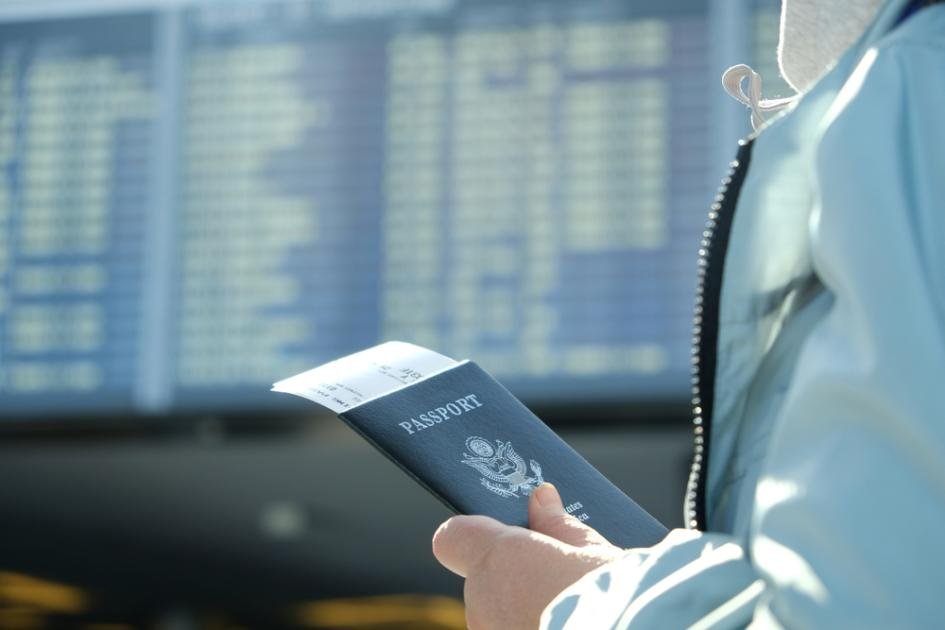Tips & Advices
Navigating US Border Entry: Essential Pre-Travel Advice

Travelers should carry physical copies of essential documents, including passport, visa, company letter confirming business purpose, travel itinerary and hotel accommodation. When traveling for business it’s also important to carry an official business card that identifies your employer.
It is essential that your visa matches the purpose of your trip – a common reason for detention would be a discrepancy in the type of visa and stated purpose of your trip. If you apply for a tourist visa, you must not intend to do anything that can be considered work including meetings, volunteering, jobs in exchange for accommodation, etc. Some travelers have also been denied entry because they planned to visit a fiancé, but did not have the proper visa. Travelers in this case should ensure they have the proper documentation regarding their relationship with a US citizen.
Consider establishing welfare checks with trusted points of contact and clear escalation protocols, including informing your embassy, should you not check in.
Understand that CBP may request to examine both your personal and business devices. All travelers, including US citizens, are obligated to provide passwords when requested. Failure to do so may result in confiscation of the device, detention, or refusal of entry for non-US citizens. Knowing this, consider limiting the number of devices you travel with and avoid publishing contentious or sensitive statements on social media. Protect personal and confidential corporate information by traveling with clean devices free of sensitive data.
If detained:
- Remain calm, professional, and cooperative.
- Understand you may be searched, including luggage, belongings, and personal devices.
- Inform your organizational point of contact as soon as possible and request recommended next steps.
- Request a translator if you do not speak English or are not comfortable answering questions in English.
- Keep documentation of any incident during the border inspection for future reference.
Tips & Advices
Should Vegans Pay Lower Health Insurance Premiums?

Tips & Advices
Why Travel Insurance Can Be a Lifesaver for Your Trip, Find out now

Monday, July 21, 2025
Whether you’re embarking on a short weekend away or a lengthy journey across continents, travel insurance remains one of the most vital components of your travel preparations. Unexpected circumstances can quickly turn your perfect trip into an expensive ordeal, and the right insurance coverage can safeguard you against significant financial burdens.
What Exactly Does Travel Insurance Include?
A comprehensive travel insurance plan typically includes protection against:
- Trip cancellations and interruptions
- Flight or transport delays
- Lost, stolen, or delayed luggage
- Stolen cash, credit cards, passports, or other vital documents
- Medical emergencies, hospitalization, and repatriation expenses
Government guidelines across Ireland and the UK strongly recommend comprehensive travel insurance due to the potential high costs of medical care abroad. According to official government resources, the costs associated with emergency medical treatment or repatriation can be extraordinarily high, often amounting to thousands of euros.
Importance of Medical Coverage
Medical coverage is particularly crucial. Accidents or illnesses abroad are unpredictable and costly. Ireland’s official guidance underscores that hospital treatments or emergency flights back home can be extremely expensive without proper insurance. Even a simple travel insurance policy can ensure you’re not left with overwhelming bills and additional stress during an already difficult time.
Types of Travel Insurance Policies Available
Different travel needs require different insurance solutions. Here are the primary policy types to consider:
- Single-trip Policies: Ideal for occasional travelers planning one-off trips.
- Annual Multi-trip Policies: Beneficial for frequent travelers, offering year-round coverage.
- Specialist Insurance Plans: Tailored for specific traveler groups such as families, senior citizens, students studying abroad, and group travelers.
Official advice highlights matching your insurance coverage with your specific travel habits and personal circumstances to ensure maximum benefit and efficiency.
Cost Considerations
Travel insurance costs vary depending on factors like your destination, length of stay, age, and activities planned. According to governmental consumer protection resources, travelers should shop around to obtain the best policy at a fair price:
- Basic European Single-trip Coverage: Approximately €22, suitable for short trips.
- Enhanced Coverage: Includes additional protections such as cancellations, luggage coverage, and up to €5 million in medical benefits, typically costing around €42.
- Annual Multi-trip Coverage: Generally starts at about €80 for Europe and upwards of €120 for global coverage.
It’s important to remember that lower-priced policies typically feature higher deductibles and fewer inclusions.
Additional Cover for Adventure Activities
Standard travel insurance usually excludes high-risk sports or adventure activities. Official Irish and UK government travel advisories clearly indicate the necessity of additional insurance for activities like skiing, scuba diving, skydiving, paragliding, or mountain climbing. Always confirm coverage specifics and add additional adventure sports coverage if needed.
Coverage for Extraordinary Situations
Common events such as extreme weather, natural disasters, strikes, and civil disturbances are typically not covered by standard travel insurance policies. Irish and UK governmental consumer advisories suggest adding specialized disruption coverage to protect yourself fully against these scenarios.
European Health Insurance Card (EHIC) – Important but Limited
Travelers within the EU should carry their European Health Insurance Card (EHIC), offering access to essential healthcare at reduced costs or sometimes free within public facilities. However, government websites clearly emphasize that the EHIC does not cover costs such as private medical care, repatriation flights, lost baggage, or stolen belongings. Therefore, comprehensive travel insurance remains essential.
Essential Tips Before Purchasing Your Policy
- Obtain your insurance immediately upon booking your travel to activate trip cancellation benefits.
- Always disclose existing medical conditions to avoid coverage disputes.
- Determine whether specific destinations or activities require extra coverage.
- Consider adding excess waivers if you wish to avoid out-of-pocket expenses for minor claims.
- Frequent travelers should evaluate annual multi-trip coverage for better overall value.
- Always read policy documents carefully to understand exactly what’s included.
Final Thoughts
Travel insurance is more than merely optional; it’s the responsible thing to do when you’re planning to travel. Good coverage can protect you against expensive surprises and provide crucial assistance in an emergency while you are overseas. The combination of EHIC and a good travel insurance policy is considered by UK government authorities as the ideal approach to SAFE Guarding your travels.
Tips & Advices
Now, India Joins Canada, UK, Australia, UAE, Singapore, and USA To Embrace CyberSafe Travel Era as TripJack and BOXX Launch Digital Tourism Security Solution, Here’s More

Sunday, July 20, 2025
When travelers from busy hubs like Mumbai, Delhi or Bengaluru are planning their next trip, they often overlook the unseen threats lying in wait online. And yet in a time when we board planes, show passports, make hotel reservations, and consummate credit card purchases on our smartphones, it is now as critical to our physical safety that we be safe from predators in the digital sphere. So for the first time, TripJack, India’s largest B2B travel platform, has collaborated with global specialist BOXX Insurance to launch CyberSafe – a revolutionary cyber defense suite to protect travelers against digital crime. Not only does this drive establish India as a progressive tourism market, but also raises the bar for travel safety globally.
Add Digital Security To Your List Of Travel Essentials
India’s tourism sector has seen spectacular growth in recent years with governments pushing for Safe and Honourable Tourism guidelines to safeguard visitors and locals. Historically, the datum for attention would be on public health, on crime prevention, on physical infrastructure. What’s been lacking until now is a comprehensive approach to protecting against digital exploitation — including identity theft, financial fraud and phishing scams — especially for travelers.
CyberSafe fills that gap. It offers real-time identity monitoring, dark web alerts, access to Wi‑Fi advocacy specialists, restoration support, and resources that help educate travelers about threats before they escalate to incidents. In essence, CyberSafe is a “digital first aid kit” for travelers, that could help lessen the emotional and financial cost of cybercrime while overseas.
Facing an Escalating Digital Threat
According to studies, 35% of Indian travelers have been a victim of a cybercrime while overseas, and internationally more than a quarter of all international travelers are affected by a cybercrime during their trips. Those numbers reflect the changing nature of travel — routine activities like sending money, looking up personal facts or booking a tour can pose risks to the traveler.
TripJack now delivers digital defenses to its traveling customers with the help of BOXX Insurance, a European and North American insurer that specializes in cyber-incident response for business travelers. This step places the Indian travel ecosystem right at the top of integrated travel protection: a combination of flight and health insurance coupled with digital trust.
Strengthening India’s Travel Framework
The Indian government(Ministry of Tourism) focuses on the safety of travellers and consumer rights. CyberSafe is in line with these strategic efforts, providing an extra dimension of safety within the framework of e-tourism. This partnership also contributes to the observance of legislations that encourages information exchange, emergency response, and ICT security such as the Safe and Honourable Tourism Code of Conduct.
At the same time, the nut on the job done by cyber security agencies including CERT-In (Computer Emergency Response Team India) to secure the national digital infrastructures has been tightened. With a traveler-centric service like CyberSafe, national capability is translated into personal confidence: cyber protection you can take with you, and take to the bank.
CyberSafe: What It Means for Travelers, and Industry
For travelers, specifically holiday-makers in places such as Phuket, Maldives, Dubai, or Barcelona, CyberSafe provides that peace of mind by completing the digital chain – when they first come until after they leave. For travel agents and service providers, it becomes a powerful differentiator — a way to demonstrate they really care for travelers well-being rather than just the journey itself.
With more than 72,000 travel agents on their platform, TripJack in India will now provide CyberSafe in their bundled travel deals. This would enable agents in Tier 2, Tier 3 and metro cities to offer a superior customer experience while safeguarding confidential information and digital assets.
Enhancing Tourism Brand and Trust
In global tourism, in which a destination’s reputation and a traveler’s confidence are inextricable, India’s action sends a clear signal: The country is in the business of not only hospitality but also comprehensive care. Securing borders is a matter of national ambition now on land, in the air and at sea —& this day & age, digitally.
With India pushing for a better ranking in global tourism stats and more business travelers and digital nomads making their way here, having CyberSafe as part of the travel checklist improves both the public perception and competitive edge.
A New Era of Foreign Travel Security
This is more than a stand-alone product, it is part of a broader transformation in travel policy and practice. Canada, the UK, Australia and members of the EU are all coming to expect citizens to guard not only their own health but also data while traveling. India’s CyberSafe campaign dovetails nicely with these current global standards.
As governments prioritize keeping citizens safe when they are outside the country (and safe can mean protection not just from physical harm, but also from cyber injury), travel safety now encompasses ALL risk factors. This is consistent resourcing with best practice consumer protection and digital stewardship globally.
Conclusion: Digital Care and Travel Culture
Travel has always been about more than luggage weights — it’s about curiosity, resilience and trust. Now a traveler’s safety can hinge on invisible digital defenders. CyberSafe acknowledges that fact and provides essential tools for travelers to concentrate on discovery, rather than exposure.
By incorporating digital safety into tourism, TripJack and BOXX are illuminating a new kind of care — one that protects passports and phone data plastered together. This is where tourism intersects with technology and trust blooms. And within that is true freedom for travelers.
Tags: asia-pacific, Australia, Bengaluru, BOXX Insurance cybersecurity travel, Canada, CyberSafe TripJack, Delhi, digital safety tourism, Dubai, global tourism, India, India travel cyber protection, london, mumbai, New York, north america, Singapore, south asia, southeast asia, sydney, Toronto, travel insurance India 2025, UAE, UK, United Arab Emirates, United Kingdom, United States, usa
-

 Brand Stories8 hours ago
Brand Stories8 hours agoBloom Hotels: A Modern Vision of Hospitality Redefining Travel
-

 Brand Stories8 hours ago
Brand Stories8 hours agoHow Olive Group of Hotels Is Redefining Wellness Travel in India—And Why the World Is Watching
-

 Destinations & Things To Do1 day ago
Destinations & Things To Do1 day agoUntouched Destinations: Stunning Hidden Gems You Must Visit
-

 AI in Travel1 day ago
AI in Travel1 day agoAI Travel Revolution: Must-Have Guide to the Best Experience
-

 Brand Stories2 weeks ago
Brand Stories2 weeks agoVoice AI Startup ElevenLabs Plans to Add Hubs Around the World
-

 Brand Stories1 week ago
Brand Stories1 week agoHow Elon Musk’s rogue Grok chatbot became a cautionary AI tale
-

 Asia Travel Pulse2 weeks ago
Asia Travel Pulse2 weeks agoLooking For Adventure In Asia? Here Are 7 Epic Destinations You Need To Experience At Least Once – Zee News
-

 AI in Travel2 weeks ago
AI in Travel2 weeks ago‘Will AI take my job?’ A trip to a Beijing fortune-telling bar to see what lies ahead | China
-

 Brand Stories2 weeks ago
Brand Stories2 weeks agoChatGPT — the last of the great romantics
-

 The Travel Revolution of Our Era1 month ago
The Travel Revolution of Our Era1 month agoCheQin.ai Redefines Hotel Booking with Zero-Commission Model
